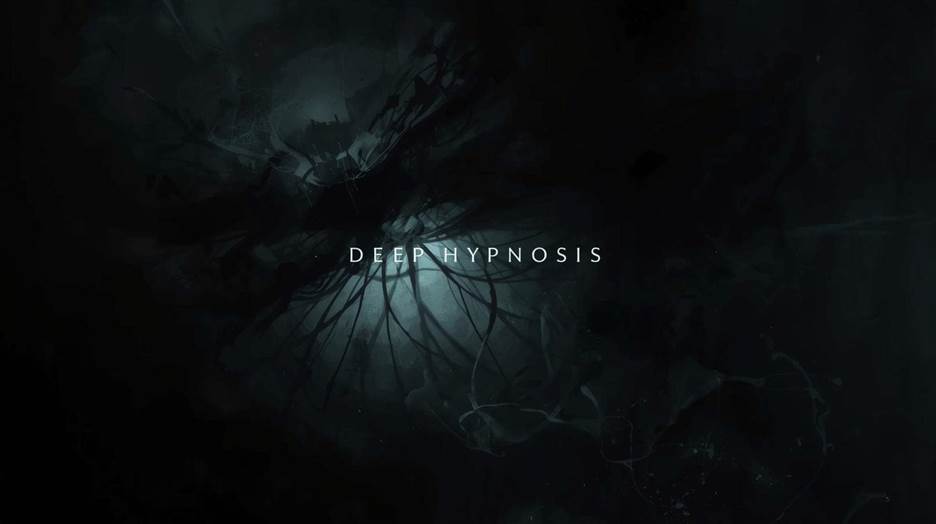Deep hypnosis is one of the most powerful states of focused relaxation and heightened awareness, often used to access the subconscious mind. Unlike light or moderate trance states, deep hypnosis allows individuals to explore hidden thoughts, repressed memories, and deeply ingrained patterns. Therapists and researchers value deep hypnosis for its potential in healing, self-discovery, and personal transformation. This profound state of mind has been associated with breakthroughs in therapy, improved mental clarity, and even enhanced creativity.
Table of Contents
Understanding Deep Hypnosis
What Deep Hypnosis Really Means
At its core, deep hypnosis is a state where the conscious mind relaxes significantly, allowing the subconscious mind to become more active and receptive. This deeper level of trance is often used in hypnotherapy sessions to achieve more meaningful results compared to lighter trance states.
The Science Behind It
Research into deep hypnosis shows that the brain functions differently during this state. Brainwave activity shifts toward slower patterns, resembling the relaxation found in meditation or deep sleep. This neurological change explains why people often feel calmer, more open, and more imaginative during deep hypnosis.
Benefits of Deep Hypnosis
Therapeutic Healing
One of the greatest advantages of deep hypnosis is its therapeutic potential. It is commonly used to help individuals overcome phobias, addictions, and trauma. By bypassing the conscious mind, deep hypnosis allows people to reframe negative beliefs and create healthier thought patterns.
Pain Management
Medical professionals have used deep hypnosis as a tool for pain relief. Patients undergoing procedures or chronic pain therapy sometimes experience significant comfort when guided into deep hypnotic states.
Stress and Anxiety Reduction
Stress and anxiety often stem from subconscious fears or unresolved emotions. Through deep hypnosis, these hidden issues can be addressed, reducing tension and improving overall mental health.
Boosting Confidence and Performance
Athletes, performers, and professionals sometimes turn to deep hypnosis to enhance focus and confidence. The subconscious mind can be trained to overcome self-doubt and develop positive habits for success.
Techniques to Achieve Deep Hypnosis
Progressive Relaxation
One of the most common methods involves guiding the individual into deep hypnosis through step-by-step relaxation. The therapist instructs the person to release tension from each part of the body, gradually deepening the trance.
Visualization
Imagery plays a powerful role in reaching deep hypnosis. Visualizing peaceful environments or specific scenarios helps the mind sink further into trance, allowing the subconscious to take the lead.
Hypnotic Inductions
Professional hypnotherapists often use verbal cues, repetitive suggestions, and calming tones to lead someone into deep hypnosis. These inductions prepare the mind to enter deeper layers of awareness.
Self-Hypnosis
Individuals can also practice self-hypnosis techniques. With consistency, self-practice can help achieve deep hypnosis without the need for a therapist.
Myths and Misconceptions About Deep Hypnosis
Losing Control
A common myth is that people under deep hypnosis lose all control. In reality, individuals remain aware and cannot be forced to act against their values. Deep hypnosis enhances focus but does not erase free will.
Entertainment vs. Therapy
Stage hypnosis has created confusion about the true nature of deep hypnosis. While it can look like a performance, therapeutic hypnosis focuses on healing and self-improvement.
Memory Erasure
Another misconception is that deep hypnosis wipes away memories. Instead, it may help individuals recall forgotten events or reframe negative experiences in healthier ways.

Deep Hypnosis in Everyday Life
Improving Sleep
Practicing deep hypnosis can improve sleep patterns. Many people who struggle with insomnia find that guided sessions calm the mind and promote restorative rest.
Enhancing Learning
By accessing the subconscious, deep hypnosis can improve memory retention and focus, making it a useful tool for students or professionals who want to enhance learning.
Strengthening Relationships
Through emotional healing, deep hypnosis may help individuals let go of resentment or trauma, fostering healthier and more meaningful relationships.
Risks and Precautions of Deep Hypnosis
Emotional Sensitivity
Because deep hypnosis can uncover repressed emotions, sessions should ideally be guided by trained professionals to prevent overwhelming feelings.
False Memories
In rare cases, suggestions during deep hypnosis may lead to false memories. This makes it important to work with skilled therapists who understand ethical guidelines.
Not a Magic Cure
While deep hypnosis is powerful, it is not a miracle solution. It works best when combined with consistent effort, therapy, and lifestyle changes.
How to Explore Deep Hypnosis Safely
Working with Professionals
Seeking guidance from certified hypnotherapists ensures safe and effective experiences with deep hypnosis. Professionals tailor sessions to individual needs and maintain ethical standards.
Practicing Self-Hypnosis Responsibly
Self-hypnosis recordings and guided audios can be useful tools, but individuals should approach them with patience and realistic expectations when aiming for deep hypnosis.
Creating the Right Environment
A quiet, comfortable space with minimal distractions enhances the chances of achieving deep hypnosis successfully.
The Future of Deep Hypnosis
Integrating with Technology
With virtual reality and advanced audio technology, the practice of deep hypnosis may become even more immersive and accessible in the future.
Expanding Research
As scientific studies continue, more evidence is likely to highlight the benefits of deep hypnosis for mental health, physical healing, and cognitive improvement.
Global Acceptance
Growing awareness and acceptance of alternative therapies suggest that deep hypnosis will play a larger role in mainstream healthcare and personal development.
Conclusion: Embracing the Power of Deep Hypnosis
Deep hypnosis is more than just a relaxation technique it is a gateway to the subconscious mind, offering opportunities for healing, growth, and transformation. From reducing stress and managing pain to boosting creativity and confidence, the potential of deep hypnosis is immense. By approaching it responsibly, with the guidance of trained professionals or through careful self-practice, individuals can unlock the mind’s hidden potential.
As society becomes more open to holistic wellness practices, deep hypnosis continues to gain recognition as a powerful tool for achieving balance, resilience, and self-discovery.